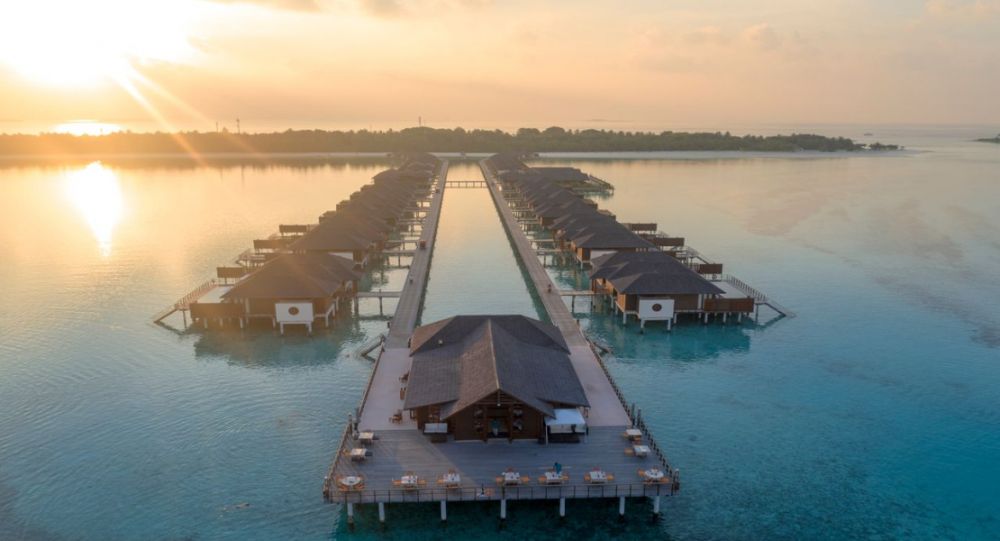

The Maldives, a tropical paradise renowned for its stunning white sand beaches and azure waters, has a long-standing relationship with tourism. The country opened its doors to international visitors in the early 1970s, with the first tourists arriving at Malé International Airport. However, it wasn't until 1972 that the Maldives officially embraced tourism as an economic activity, with the first resort opening on the island of Kurumba. Tourism grew slowly but steadily, with only two resorts in the first year.
Following this initial expansion, tourism in the Maldives progressed at a modest pace. The opening of Paradise Island Resort & Spa in the 1990s marked a significant moment in the tourism history of the Maldives. The island, locally known as Lankanfinolhu, was transformed into a resort that eventually became one of the most popular and luxurious retreats in the nation. It played a pivotal role in showcasing the Maldives as a destination capable of providing high levels of comfort, exclusive privacy, and exotic experiences.
Over the years, Paradise Island and the Maldives as a whole, have developed an extensive portfolio of accommodations ranging from budget-friendly guesthouses to opulent overwater bungalows and private villas. The destination has been recognized with numerous awards, emphasizing its appeal as a luxury tourist destination. Awards such as the World Travel Awards have often featured Maldivian resorts, with accolades such as 'World's Leading Island Destination' and 'World's Most Romantic Destination' being testament to its global allure.
In recent times, the Maldives has adopted several new initiatives reflecting the latest tourism trends. Sustainable tourism has become a focus, with resorts like Paradise Island investing in eco-friendly practices and infrastructure to protect the delicate marine ecosystem. Efforts include solar power generation, desalination plants for clean water supply, and waste management systems to minimize the environmental footprint.
Experience-based travel is another trend that has permeated Paradise Island's offerings. Visitors seek authentic and unique experiences, which are now readily available, ranging from underwater dining to intimate wildlife encounters and cultural interactions with local communities. The resort has adapted by providing personalized services that cater to these desires.
Health and wellness have also become a significant trend, resulting in the expansion of spa and wellness facilities on the island. The focus is now on holistic well-being, offering guests a comprehensive array of treatments, yoga, and meditation sessions set against the backdrop of the tranquil Indian Ocean.
Moreover, the digital nomad lifestyle has seen the Maldives, including Paradise Island, adapting to accommodate long-term stays with amenities and offers tailored to travelers who work while they explore new destinations.
Throughout the evolution of tourism in the Maldives, Paradise Island has remained a prominent example of the nation's ability to innovate and provide an extraordinary holiday experience. It reflects the essence of Maldivian hospitality, combining luxury, relaxation, and the natural beauty of the island lifestyle.